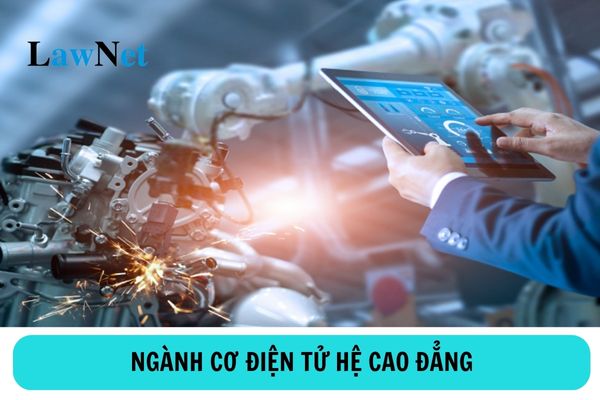What can graduates of the technical college majoring in electromechanics do after graduation in Vietnam?
What can graduates of the technical college majoring in electromechanics do after graduation in Vietnam?
Based on Subsection 5, Section A, Part 15 of the Regulations on the Minimum Amount of Knowledge, Competency Requirements for Learners Upon Graduation with Intermediate and Associate Degrees in Electrical Engineering, Electronics, and Telecommunications (hereinafter referred to as the Regulations) issued in conjunction with Circular 48/2018/TT-BLDTBXH, students with an associate degree in mechatronics upon graduation can work in the following positions:
- Machining mechanical components;
- Assembling mechanical systems in mechatronics systems;
- Assembling electrical and electronic systems in mechatronics systems;
- Assembling pneumatic and hydraulic systems in mechatronics systems;
- Operating and supervising mechatronics systems;
- Programming control systems in mechatronics systems;
- Programming and operating industrial robots;
- Maintaining and upgrading mechatronics systems;
- Business operations in the field of mechatronics.

What can graduates of the technical college majoring in electromechanics do after graduation in Vietnam? (Image from the Internet)
How many credits must a student complete for an associate degree in Mechatronics in Vietnam?
Based on Subsection 1, Section A, Part 15 of the Regulations issued in conjunction with Circular 48/2018/TT-BLDTBXH:
General Introduction to the Industry and Profession
An associate degree in mechatronics is a profession where practitioners perform design, assembly, connection, maintenance, and services related to mechatronics products and automated systems, meeting the requirements of level 5 in the Vietnam National Qualifications Framework.
Workers in the mechatronics profession can work in various positions in mechatronics product manufacturing and assembly plants, automatic production lines, companies providing mechatronics product maintenance and repair services, companies supplying mechatronics equipment, and customer service for mechatronics products and services.
The primary tasks of the mechatronics profession include: Designing mechatronics systems; analyzing the structure and operation of mechatronics systems; assembling, operating, and maintaining mechanical, electrical-electronic, hydraulic-pneumatic equipment systems, and automation systems using controllers; installing, operating automated equipment and systems; handling mechatronics system malfunctions; organizing group production, training low-level workers.
Minimum Amount of Knowledge: 2,500 hours (equivalent to 90 credits).
Thus, students in the mechatronics associate degree program need to complete a minimum of 2,500 hours (equivalent to 90 credits).
What are skill requirements for associate degree students in Mechatronics in Vietnam?
Based on Subsection 3, Section A, Part 15 of the Regulations issued in conjunction with Circular 48/2018/TT-BLDTBXH, the skill requirements for associate degree students in mechatronics are as follows:
- Be able to read technical drawings related to mechatronics systems, controllers, microcontrollers, etc.;
- Install, operate, and exploit mechatronics systems and mechatronics products with mechanical driving systems, electrical-pneumatic, electrical-hydraulic systems, electrical drive control, electro-hydraulic-pneumatic servo systems;
- Apply control methods: PLC programming, microcontroller, robot, various types of sensors, industrial communication networks in specialized work;
- Design automation solutions for control systems, flexible production modules, controller systems with functions of control, monitoring, and data collection;
- Plan, organize, execute, supervise, and evaluate actual industrial production processes and the technical-technological-economic relationships between production stages;
- Manage, organize, and maintain industrial systems, applying computers in planning maintenance of industrial systems in companies and enterprises;
- Propose, prepare projects, participate in organizing, operating, and managing technical stations and automated systems as well as technical service activities;
- Develop technological processes and process products using CAD/CAM/CNC technology, 3D printing technology; access and develop new technologies based on knowledge and skills acquired in school;
- Maintain and repair mechanical driving mechanisms, electrical-electronic equipment, hydraulic-pneumatic systems in mechatronics;
- Use basic information technology as prescribed; exploit, process, and apply information technology in specialized work;
- Use basic foreign languages, achieving level 2/6 in the Vietnam Foreign Language Proficiency Framework; apply foreign languages in specialized work.

